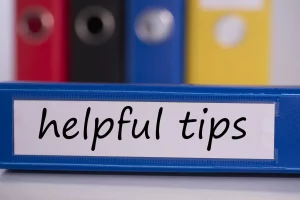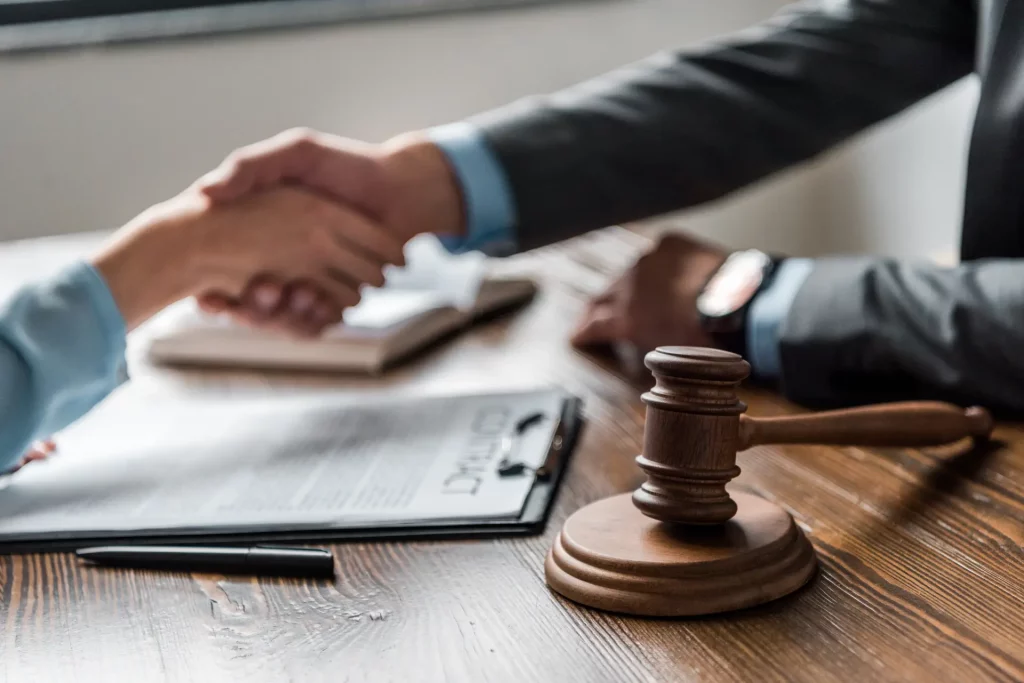5 Tips for Hiring a Personal Injury Lawyer: Complete Guide

Have you recently been injured due to someone else’s negligence or wrongdoing? Dealing with an accident’s physical, emotional, and financial aftermath can be overwhelming and having a skilled professional by your side who can advocate for your rights and help you navigate the legal complexities is crucial. This is where a personal injury lawyer steps in.
In this article, we’ll discuss all you need to know before hiring a personal injury lawyer to represent you.
What is a Personal Injury Lawyer?
A personal injury lawyer is a legal professional representing individuals injured due to someone else’s actions or negligence. They possess in-depth knowledge and expertise in personal injury law, allowing them to offer invaluable guidance and support to their clients. Hiring a personal injury attorney in Houston, a large city with busy streets, heavy traffic, and many potential hazards, becomes even more critical.
Why Is It So Important to Hire a Personal Injury Lawyer?
A personal injury lawyer possesses the necessary expertise to assess the viability of your case and determine the potential for compensation. They will thoroughly evaluate your situation, gather evidence, and build a strong legal strategy to present your claim effectively. This expertise is crucial, as personal injury laws can be complex and vary from state to state.
Tips for Hiring a Personal Injury Lawyer

Use the following tips to find the best personal injury lawyer to handle your case:
1. Research Potential Personal Injury Lawyers in Houston
With the advent of online resources and the abundance of legal professionals, conducting comprehensive research can help you identify the most suitable lawyer to represent your interests. To make the best out of research, do the following:
- Utilize online resources like a web search for a personal injury lawyer in Houston, visit law firm websites, and explore online directories
- Read client reviews and testimonials to gain insight into a personal injury lawyer’s reputation and service quality.
- Seek recommendations from trusted sources such as individuals with first-hand experience of hiring a personal injury lawyer
- Consider the lawyer’s experience and expertise
2. Evaluate Potential Lawyers With An Initial Consultation
Once you have conducted thorough research and identified potential personal injury lawyers for your case, the next crucial step is scheduling an initial consultation. This consultation allows you to meet the lawyer, discuss your case, and assess whether they fit your needs.
Pay attention to the lawyer’s professionalism and demeanor during the initial consultation. Evaluate their communication style, attentiveness, and willingness to address your concerns.
Do you feel comfortable working with them? Do they demonstrate a genuine interest in your case? A positive rapport and compatibility can contribute to a successful attorney-client relationship.
You can make an informed decision during the initial consultation by preparing relevant questions, assessing their experience and strategy, understanding their fee structure, and evaluating their professionalism and compatibility.
Here are some questions you could ask during the initial consultation:
- Experience with Similar Cases: Inquire about the lawyer’s experience handling cases similar to yours. Understanding their familiarity with the specific complexities of your case can help you gauge their expertise and ability to handle your situation effectively.
- Strategy for Handling the Case: Ask the lawyer about their approach and strategy for handling your case. Discuss potential legal options, timelines, and the likelihood of settlement versus litigation. A clear understanding of their strategy can give you confidence in their ability to advocate for your best interests.
- Fee Structure and Payment Arrangements: Discuss the lawyer’s fee structure and payment arrangements during the initial consultation. Ask about contingency fees (where the lawyer only gets paid if you win your case) or other billing options. Understanding the financial aspects upfront ensures transparency and avoids any surprises later on.
- Availability and Communication: Inquire about the lawyer’s availability and preferred communication method. Effective communication and accessibility are vital for a smooth working relationship. Ensure that the lawyer will be responsive to your inquiries and keep you informed about the progress of your case.
3. Evaluating the Lawyer’s Resources and Support Staff

The success of your case often depends on the collective efforts and capabilities of the entire legal team.
Assessing the law firm’s resources, including their staff size and expertise, access to investigative resources, and collaboration with experts, as well as recognizing the importance of a dedicated support staff for the lawyer, can help you make a well-informed decision about the level of support and quality of representation you can expect.
4. Review the Lawyer’s Professional Credentials and Reputation
This step helps ensure that you engage a qualified and reputable lawyer who is well-equipped to handle your case effectively.
You can gain confidence in their expertise and ethical standing by verifying the lawyer’s credentials and licenses, checking for disciplinary actions or complaints, and assessing their reputation in the legal community.
5. Make the Final Decision
After conducting thorough research, evaluating potential personal injury lawyers, and gathering all the necessary information, it is time to make the final decision. This decision is crucial as it determines the lawyer representing your interests throughout your personal injury case. Make the final decision by doing the following:
Analyzing All Gathered Information
Take the time to carefully analyze all the information you have gathered during your research and consultations with potential lawyers. Consider their experience, expertise, track record, reputation, resources, and support staff. Assess how well they answered your questions, addressed your concerns, and aligned with your needs and goals.
Trusting Instincts and Intuition
While gathering information and analyzing various factors is essential, trusting your instincts and intuition is equally important. Pay attention to how you felt during your interactions with each lawyer.
Did you feel comfortable communicating with them? Did they listen attentively and genuinely understand your concerns? Trusting your gut feelings can provide valuable insights into the potential working relationship and compatibility with the lawyer.
Considering Availability and Willingness to Handle the Case Promptly
When making the final decision, consider the lawyer’s availability and willingness to handle your case promptly.
Personal injury cases often have deadlines and time-sensitive requirements. Ensure that the lawyer you choose has the capacity and dedication to devote sufficient time and attention to your case. Prompt and proactive handling of your case can make a significant difference in achieving a favorable outcome.
Selecting the right personal injury lawyer is crucial for a successful legal journey. Trust your judgment, and consider all relevant factors so that you can choose a lawyer with the necessary skills and expertise that aligns with your needs and goals.
Want to hire a personal injury lawyer for your case?

It is crucial to take action and actively search for the right personal injury lawyer for your case, as your lawyer will play a pivotal role in navigating the complexities of personal injury law and advocating for your best interests.
To hire the best lawyer for your case, you should conduct thorough research, evaluate credentials and reputation, schedule consultations, and remember to trust your instincts. You can find a lawyer who aligns with your needs and has the expertise to pursue the compensation you deserve.
Remember, time is of the essence in personal injury cases, so it is important to begin the search for a lawyer as soon as possible. Consider hiring us at The Callahan Law Firm. Get a competent attorney who only charges when you win. Call us for a FREE case review.
FAQs for Tips for Hiring a Personal Injury Lawyer
Q1: How can I find a reliable personal injury lawyer?
A: Finding a reliable personal injury lawyer involves:
- Conducting adequate research.
- Reading testimonials and client reviews.
- Seeking recommendations from trusted sources.
- Evaluating support staff and resources.
Q2: What factors should I consider when hiring a personal injury lawyer?
Factors like experience, track record, expertise, availability, communication, fee structure, and compatibility should be considered when hiring a personal injury lawyer.
Q3: What experience should a personal injury lawyer have?
A personal injury lawyer should have relevant experience handling various personal injury cases. This includes experience in car accidents, slip, and fall incidents, workplace accidents, medical malpractices, product liability, etc. Ideally, a personal injury lawyer should have a substantial track record of successfully representing clients in cases similar to yours. Their experience should demonstrate a comprehensive understanding of personal injury law’s legal issues and challenges.

Michael S Callahan is an attorney and founder of The Callahan Law Firm. He focuses his practice on representing individuals and families in personal injury cases involving motor vehicle and truck accidents, workplace accidents and defective products. With over 25 years of experience, he is dedicated to fighting on behalf of people whose lives have been forever altered by the negligence and carelessness of corporations and individuals. Originally trained as a mechanical engineer, Michael has been practicing law and fighting for justice for those who need it most since 1994. He is board-certified in Personal Injury Trial Law by the Texas Board of Legal Specialization and a member of various esteemed legal associations. Outside of work, Michael enjoys spending quality time with his family, outdoor activities, and continually striving to improve as a trial lawyer and human being.











